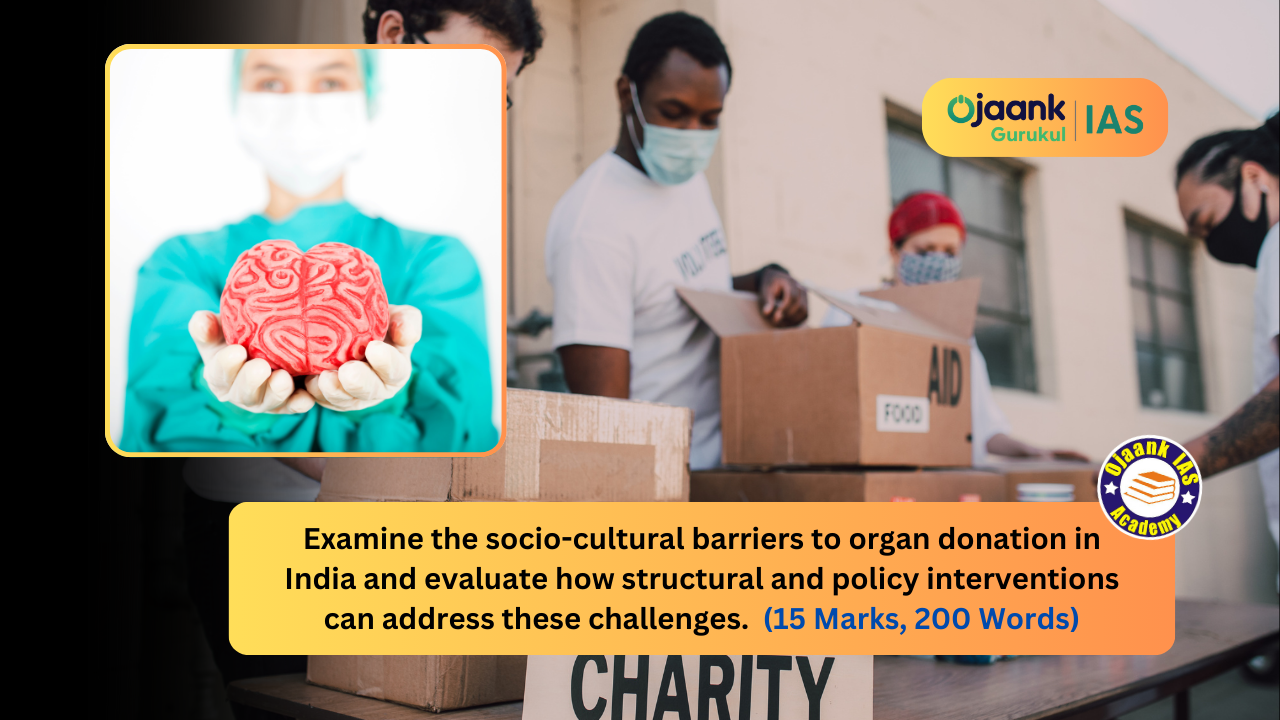Examine the socio-cultural barriers to organ donation in India and evaluate how structural and policy interventions can address these challenges. (15 Marks, 250 Words)

Socio-Cultural Barriers to Organ Donation
-
Cultural and Religious Myths:
- Many believe that organ donation disrupts the sanctity of the body after death.
- Certain religious beliefs discourage discussions around body mutilation post-death, limiting participation.
-
Lack of Awareness:
- Families are often unaware of brain death criteria and how organ donation can save multiple lives.
-
Emotional Resistance:
- Grieving families hesitate to consider donation due to emotional distress and misinformation.
Policy and Structural Interventions
-
Community Awareness Campaigns:
- Address myths by engaging religious leaders and influencers to advocate for organ donation.
- Utilize schools, media, and workplaces to educate the public about donor registration and brain death.
-
Incorporating Transplant Coordinators:
- Appointing permanent transplant coordinators in hospitals to counsel families with empathy and clarity.
-
Simplifying the Legal Framework:
- Streamlining procedures under the Transplantation of Human Organs Act to enhance transparency and build public trust.
-
Incentivizing Donations:
- Providing financial support or healthcare benefits to donor families to encourage participation.
-
Improving Accessibility:
- Expanding organ transplantation facilities in underserved areas to ensure equitable healthcare access.
Long-Term Impact
A combination of education, policy reforms, and community support can dismantle socio-cultural barriers and significantly increase organ donation rates. These interventions will ensure equitable access to life-saving transplants, improving overall public health outcomes in India.
FAQs
1. What are the main socio-cultural barriers to organ donation in India?
Cultural myths, religious restrictions, emotional resistance, and lack of awareness about brain death prevent widespread acceptance of organ donation.
2. How can awareness campaigns improve organ donation rates?
Educational initiatives in schools, workplaces, and social media can debunk myths and encourage donor registration.
3. What legal reforms can help simplify organ donation?
Strengthening the Transplantation of Human Organs Act, ensuring transparency, and reducing bureaucratic delays can boost organ donations.
4. Why is emotional resistance a major challenge in organ donation?
Families in grief may struggle with the decision to donate organs due to emotional distress and misinformation.
5. How can India improve access to organ transplants?
Expanding organ transplant facilities in rural areas and offering incentives to donor families can improve accessibility and participation.